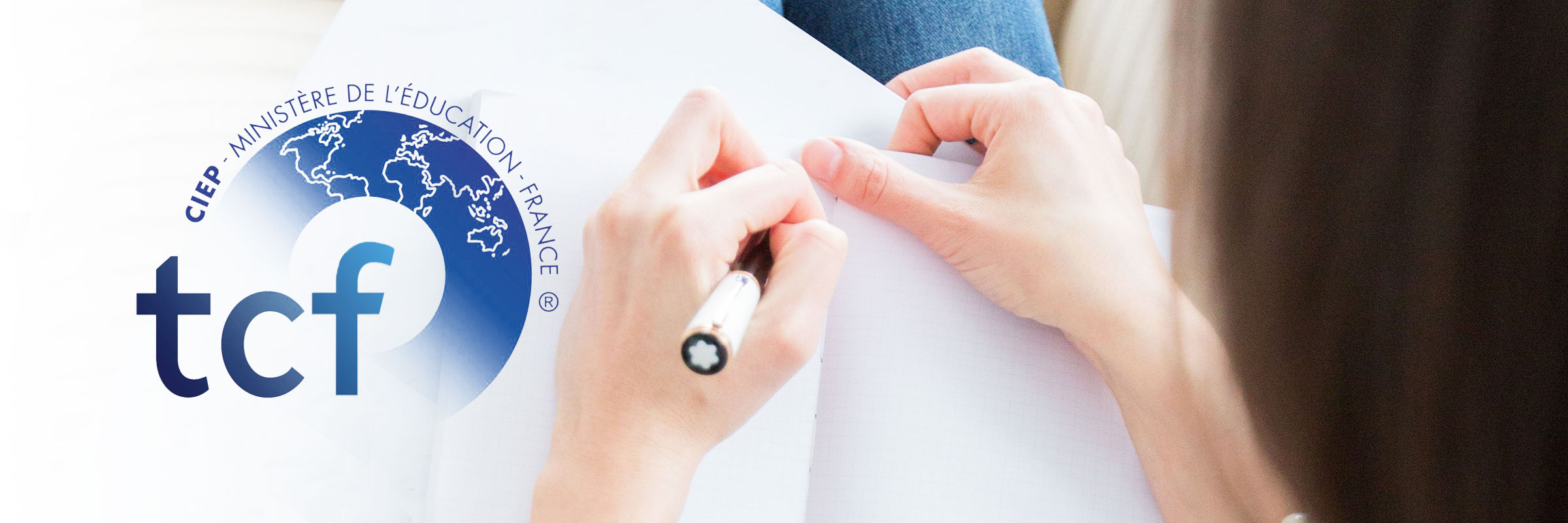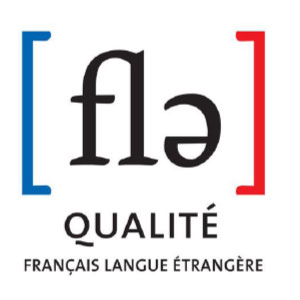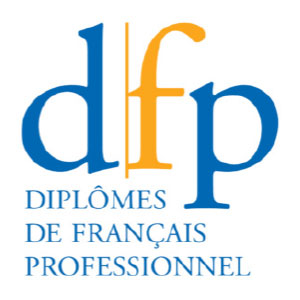TCF Exam
We can work around your schedule!
The three compulsory examinations (76 questions *)
* The computer version of the test comprises 91 questions. The 15 additional question of the computer version will not be counted when calculating the final score. They enable the CIEP to analyse the validity of questions. The time given to take this computerised examination is essentially the same as for the paper version (ten additional minutes).
Questions are multiple choice, comprising 76 questions in total. Only one out of the four answers offered for each question is correct. questions are presented in order of increasing difficulty, ranging from level A1 to level C2 in the Common European Framework of Reference for Languages.
Listening (29 questions, 25 minutes)
The questions enable evaluation of your ability to understand spoken French, in particular:
current words and expressions in daily communication (dialogues, interviews, discussions, speaking on the telephone, etc.);
the essentials in messages and public announcements;
information on people, facts or events on radio or television programmes related to the news or on personal, professional or educational subjects;
reports on tangible or abstract topics;
all kinds of dialogue delivered in a standard flow.
The recordings are representative of oral communication such as you may hear in France or francophone countries, particularly involving extracts from the Radio France Internationale (RFI) station(link is external).
Proficiency in language structures: grammar and vocabulary (18 questions, 15 minutes)
The questions assess your ability to identify and select the correct wording in syntactic and lexical structures.
The questions are always associated with communication situations and French or francophone contexts.
Reading (29 questions, 45 minutes)
The questions test your abilities to understand:
very simple familiar nouns, words and phrases used in communication situations (friendly or administrative messages and letters);
information contained in common documents (classified ads, prospectus, menus and timetables, etc.);
information on people, facts or events (personal letters);
texts in common language that is relevant to daily life or work;
articles and reports in which the authors take a stand on concrete or abstract subjects;
long and complex factual or literary texts from academic articles; abstract texts or complex extracts from works, academic articles, literary works.
The documents are representative of those you may read in France or in francophone countries.
Tips and tricks for taking this examination
arrive 30 to 45 minutes before the test begins;
don't forget your form of identity and a black pen;
listen carefully to the invigilator's instructions;
listen carefully to aural documents and questions as you will hear them just once;
read the instructions carefully;
read the questions carefully and use the time available to you to think about your answers. Don't just write anything down;
if you hesitate too long, move on to the next question; write your answer on the answer sheet. Never write on the booklet.
The two optional examinations
Speaking (interview lasting a maximum of 12 minutes)
The speaking examination is taken individually and is in the form of a face-to-face interview with an examiner.
This examination comprises 3 tasks, and you will have time to prepare for one of these .
These 3 tasks evaluate the candidate on the six levels of the scale on the Common European Framework of Reference (from level A1 to level C2).
The interview is recorded, assessed a first time by the examiner, then sent to the CIEP for a second evaluation. Each recording always undergoes a double marking.
Description of the tasks:
Task 1
Interview given without preparation.
The exchange lasts: 2 minutes
Objective of the task: the candidate must prove that they can have an exchange with a person that they do not know (the examiner).
Task 2
Exercise in interaction with preparation.
Duration: 5 minutes 30 seconds (of which 2 minutes are given to preparation time, during which the candidate is permitted to take short notes)
Objective of the task: the candidate must prove their ability to obtain information in a situation in modern daily life . The roles of the examiner and the candidate are specified in the instructions.
Task 3
Expression of a point of view without preparation.
The exchange lasts: 4 minutes 30 seconds
Objective of the task: the candidate must prove their ability to speak in a spontaneous, continuous and convincing manner when answering a question asked by the examiner.
The candidate is assessed on their ability to:
talk about themselves, their surroundings, family and job;
ask questions related to the given communication situation;
give their opinion and explain the advantages and disadvantages of a project, express their agreement and disagreement;
present a clear and structured argument in a style appropriate to the context;
present complex subjects in a detailed and structured manner, develop them and conclude them.
Writing (60 minutes)
This examination comprises three tasks presented in an increasing order of difficulty.
Description of the tasks:
Task 1
Writing a message to describe, recount and/or explain, addressed to one or several recipients, whose role was specified in the instructions
Number of words expected: minimum 60 words/maximum 120 words.
Task 2
Writing an article, a letter, a note, etc. intended for several recipients to report on an experience or tell a story. Reports and accounts will be accompanied by commentaries, opinions or arguments, depending on the objective (e.g.: to claim, to reconcile, etc.).
Number of words expected: minimum 120 words/maximum 150 words.
Task 3
Writing a text (for a newspaper, website, colleague, manager, etc.) that compares two points of view on a social reality, expressed in two short and simple documents of approximately 90 words each. The candidate takes a stand on the topic highlighted in the two documents.
Number of words expected: minimum 120 words/maximum 180 words. I.e., between 40 and 60 words for the 1st part of the task and between 80 and 120 words for the 2nd part of the task.
Candidates are assessed on their ability to:
communicate a message clearly;
provide the information requested;
describe, recount, and explain;
justify a choice, position, decision, etc.;
link ideas and exercise consistency in discourse;
compare two points of view;
express their opinion and argue it;
use vocabulary and structures adapted to the relevant task;
be capable of summarizing and rewording.
The price of the exam will depend on which exam you take. You can choose which exams you can take:
TCF TP - N$ 3564 (Mandatory tests : listening, reading, language structure / + options : writing and speaking). If you don't' need the options, contact us for a quote.
TCF CA - N$ 3348 (Listening, reading, writing, speaking)
TCF QC - N$ 3528 (Listening, reading, writing, speaking)
TCF DAP- N$ 2479 (Listening, Reading, Language structure + Writing)
All information available when you click the register now button.




